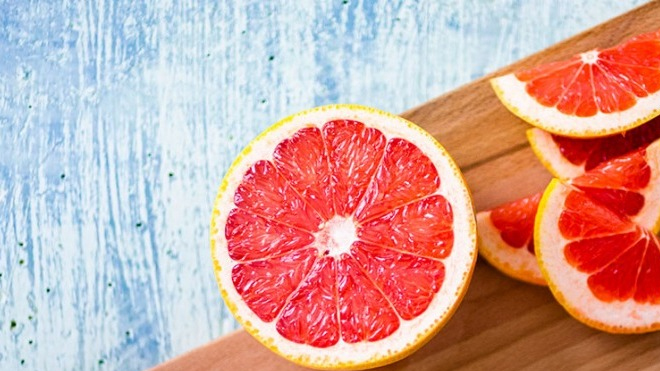Consumir toronja y medicamentos para la tensión puede ser perjudicial
La fruta de amargo sabor es rica en potasio y vitamina C, dos nutrientes que el cuerpo necesita para funcionar adecuadamente; no obstante, el jugo de toronja mezclado con algunos medicamentos pueden alterar el funcionamiento de los mismos.
De acuerdo con la Administración de Medicamentos y Alimentos es la agencia del Gobierno de los Estados Unidos (FDA), el jugo de toronja puede afectar a las personas que consumen ciertas estatinas y la fexofenadina, reseña el portal web de Sputnik.
Estos son los medicamentos que se deben evitar si se consume toronja:
Medicamentos de estatina para reducir el colesterol, como Zocor (simvastatina) y Lipitor (atorvastatina).Medicamentos para la hipertensión arterial como Procardia y Adalat CC (ambos nifedipina).
Medicamentos para evitar el rechazo de órganos trasplantados como Neoral y Sandimmune en cápsula o solución oral (ciclosporina).
Medicamentos contra la ansiedad como BuSpar (buspirona).
Corticoesteroides que tratan la enfermedad de Crohn o la colitis ulcerosa como Entocort EC y Uceris (ambos budesonida).
Medicamentos que tratan los ritmos cardiacos anormales como Pacerone y Cordarone en tableta (ambos amiodarona).
Antihistamínicos como Allegra (fexofenadina).
De acuerdo con la FDA, en el caso de la mayoría de los medicamentos que se ven afectados por el jugo de toronja, este permite que entre más medicamento en la sangre, explica la doctora Shiew Mei Huang, de la FDA.
Grapefruit Warning: It Can Interact with Common Medications
Grapefruit is a delicious citrus fruit with many health benefits. However, it can interact with some common medications, altering their effects on your body.
If you’re curious about the grapefruit warning on many medicines, this article will help you understand why it’s there and what your options are.
Here’s a closer look at common drugs that may have dangerous interactions with grapefruit, as well as some alternatives.
Note: This article contains general information — not specific medical advice. Talk to your physician before changing your use of any medication.
How does it interact with medications?
Medications are processed in your liver and small intestine by a specialized group of proteins called cytochrome P450 (CYPs).
CYPs break down medications, reducing the blood levels of many of them.
Grapefruit and a few of its close relatives, such as Seville oranges, tangelos, pomelos, and Minneolas, contain a class of chemicals called furanocoumarins.
Furanocoumarins disrupt the normal function of CYPs. In fact, studies show that they increase the blood levels of over 85 medications.
By slowing the way in which CYPs normally break down medications in your gut and liver, grapefruit can increase the side effects of these drugs.
There are three things to know to understand if and how you can safely consume grapefruit with these medications.
- It doesn’t take much. One whole grapefruit or one glass of grapefruit juice is enough to alter how these medications affect you.
Its effects last several days. Grapefruit’s ability to affect medication lasts for 1–3 days. Taking your medication a few hours apart from consuming it isn’t long enough. - It’s significant. For a small number of drugs, grapefruit’s effects can be serious.
With that in mind, here is detailed information about common medications that may interact with grapefruit, categorized by use.
Certain blood pressure medications
Most types of blood pressure medicines are not affected by grapefruit.
However, the following four blood pressure medications should be used cautiously:
Felodipine
Nifedipine (Procardia)
Losartan (Cozaar)
Eplerenone (Inspra)
The first two medications in this list are known as calcium channel blockers. They work by changing the way your blood vessels use calcium, relaxing the vessels, and relieving blood pressure.
The last two medications in this list work by decreasing the activity of a hormone called angiotensin 2, which naturally increases blood pressure.
One study found blood levels of nifedipine increased dramatically when taken with about 2 cups (500 mL) of grapefruit juice, compared with no juice. This resulted in a rapid drop in blood pressure, which could be dangerous if unsupervised.
Losartan is unusual in that grapefruit decreases its effects, potentially limiting its ability to control blood pressure.
Eplerenone works similarly to losartan, but its levels increase when taken with grapefruit. Excessive eplerenone levels can cause too much potassium in the blood, which can interfere with heart rhythm.
healthline


 (1) (2).jpg)

